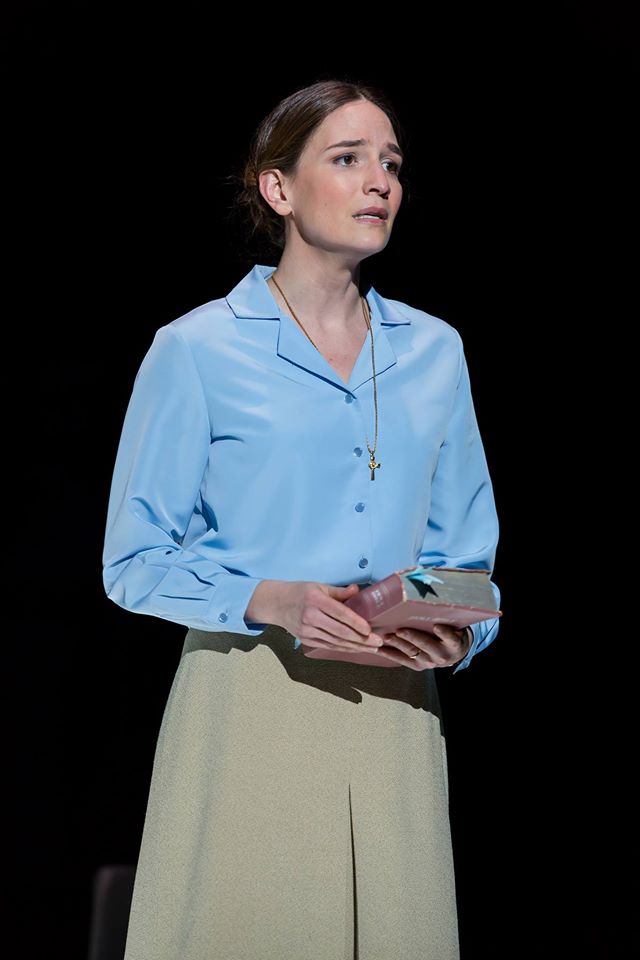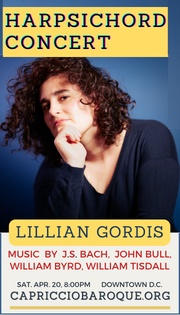WNO gives a worthy DC premiere of Heggie’s “Dead Man Walking”

Kate Lindsey stars as Sister Helen Prejean in Jake Heggie’s “Dead Man Walking” at Washington National Opera.
Since its premiere at San Francisco Opera in 2000, Jake Heggie’s opera Dead Man Walking has had a remarkable run. Opera companies around the United States and in Europe have staged it many times, including the now-defunct Baltimore Opera in 2006.
Dead Man Walking has come at last to Washington National Opera, in a production directed by artistic director Francesca Zambello, which opened Saturday night at the Kennedy Center Opera House. The company offered it in the spirit of its observance of the JFK centennial, in connection with that president’s opposition to the death penalty.
Librettist Terrence McNally adapted the story from Sister Helen Prejean’s memoir of the same name, likely familiar from the film version starring Susan Sarandon and Sean Penn. A nun of the Congregation of St. Joseph, Prejean becomes the spiritual adviser of Joseph de Rocher, a convicted rapist and murderer on death row at the Louisiana State Penitentiary. When he loses his final appeals, de Rocher finally admits his guilt to Sister Helen before being executed by lethal injection.
Mezzo-soprano Susan Graham, who created the role of Sister Helen, this time sings the role of the convict’s mother, created by Frederica von Stade. Unrecognizable in a curly wig and glasses, Graham stood out for the power and intensity of her voice, especially in her outburst at the pardon board hearing in Act I. She brought dignity and sympathy to the character, who believes quite wrongly in her son’s innocence.
Graham’s presence tended to upstage mezzo-soprano Kate Lindsey as Sister Helen, in a long-overdue company debut. The Virginia native became familiar to Washington listeners a decade ago as an apprentice at Wolf Trap Opera for her sparkling bel canto passage work. The more dramatic demands of this role did not come easily for her demure voice, which was not able to project itself over the large ensembles or orchestral textures. Her characterization of the wise-cracking nun was akin to her trouser roles, boyish and playful but not quite substantial enough.
Baritone Michael Mayes made a much stronger company debut as Joseph de Rocher. He had the necessary snarling menace as the tattooed convict, convincingly muscled to be believable as the villain he was. He could also croon sweetly at the top of his range, heard as he foolishly tried to seduce Sister Helen at their first meeting and recalling the character’s idolizing of Elvis Presley.
Many of the supporting roles were filled out by current and former members of the Domingo-Cafritz Young Artist Program. Soprano Kerriann Otaño and mezzo-soprano Daryl Freedman stood out for their vocal power as the distraught mothers of the murder victims. The quartet of parents, joined by Sister Helen and Mrs. de Rocher for the Act II sextet– the opera’s best set piece–was filled out by company veteran Robert Baker and bass-baritone Wayne Tigges in a strong company debut. Jacqueline Echols showed remarkable range as Sister Rose, with dramatic weight to add to the avian lightness of her Forest Bird in last spring’s Siegfried.
Michael Christie, music director of Minnesota Opera, had a strong debut at the podium, conducting the score with authority. The men of the WNO Chorus made a scrum of prisoners more cartoonish than threatening, vocally strong but misdirected into parody by Zambello. The WNO Children’s Chorus sounded angelic and acted beautifully in the scenes at Hope House, the mission run by Sister Helen’s order.
Zambello’s staging was grim and effective, set on a single industrial set (designed by Allen Moyer), dominated by a metal catwalk that worked nicely for the prison, less so for the mission. In an odd tic of direction, Zambello had the singers sit in chairs at the edge of the scene, watching as they waited to join the action and thus robbing some scenes of possible drama. Jessica Jahn’s costumes helped situate the action easily in the 1980s, a decade of terrible fashion decisions.
The opera has not worn well upon subsequent hearings, a disappointment also experienced with Heggie’s Moby-Dick. Sister Helen’s motif, the hymn He Will Gather Us Around, and the irregular meter of de Rocher’s music both now seem like hackneyed clichés. Several scenes could be excised from the score to make the evening stronger, including the second scene with the parent quartet in Act II, Sister Helen’s Act II monologue, and the solo for Owen Hart, the father of the murdered girl. Worse, the violence of the opening scene, in spite of the brave performances of the supernumerary actors Rebecca Brinkley and Dylan Jackson, seemed gratuitous and unnecessary this time around.
Dead Man Walking runs through March 11. kennedy-center.org; 202-467-4600.







Posted Feb 26, 2017 at 9:43 pm by Laura Youens
Very perceptive. I’ve always had problems with Zambello’s productions.